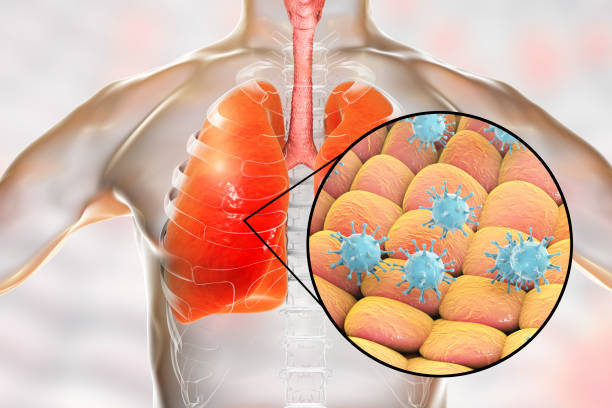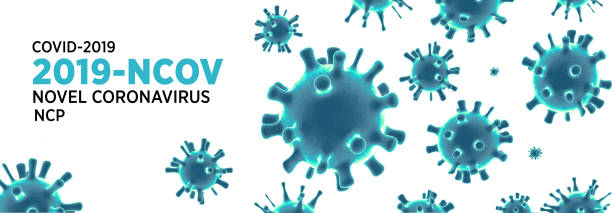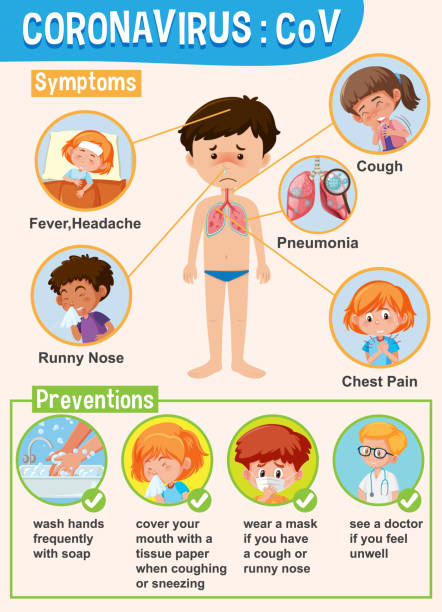Understanding the Coronavirus Incubation Period: Key Insights and Implications
In the realm of infectious diseases, the incubation period plays a crucial role in determining how rapidly an infection can spread, how effectively it can be contained, and the potential risks it poses to public health. The coronavirus pandemic, caused by the severe acute respiratory syndrome coronavirus 2 (SARS-CoV-2), has brought the concept of the incubation period to the forefront of global attention. Understanding this period is essential for diagnosing cases, implementing effective control measures, and managing the overall impact of the disease. In this article, we delve into the intricacies of the coronavirus incubation period, shedding light on its significance, variability, and implications.
The Incubation Period Defined
The incubation period refers to the time between exposure to a pathogen, such as a virus or bacterium, and the onset of recognizable symptoms in an infected individual. This period is critical as it signifies the time during which the pathogen is multiplying within the body and establishing an infection. For SARS-CoV-2, the incubation period typically ranges from 2 to 14 days, with an average of around 5-6 days. This variability poses challenges for disease control and management, as individuals can transmit the virus to others even before showing symptoms.
Significance in Disease Transmission
The coronavirus incubation period holds immense importance in the context of disease transmission. The fact that individuals can carry and spread the virus while still being asymptomatic or presymptomatic has contributed to the rapid global spread of COVID-19. This phenomenon makes it challenging to identify and isolate cases promptly, enabling the virus to circulate silently within communities. It emphasizes the need for widespread testing and contact tracing, as identifying and quarantining individuals during the incubation period can help curb transmission chains.
Factors Influencing Variability
Several factors contribute to the variability of the coronavirus incubation period. These include individual characteristics, viral load, immune response, and potential exposure levels. Some individuals may have shorter or longer incubation periods due to variations in their immune systems or initial viral load. Moreover, the emergence of new variants of the virus has raised concerns about potential changes in the incubation period, further complicating disease management and control efforts.
Diagnostic Challenges
The variable nature of the incubation period poses challenges for diagnosing COVID-19. Individuals who have been exposed to the virus may test negative during the early stages of the incubation period, leading to false reassurance. This phenomenon underscores the importance of repeated testing, especially for individuals with known exposure to confirmed cases. Diagnostic accuracy is paramount in preventing undetected transmission and ensuring timely medical intervention.
Implications for Public Health Measures
Understanding the coronavirus incubation period has direct implications for public health measures. Quarantine and isolation periods are determined based on this period to prevent infected individuals from transmitting the virus to others. Individuals with known exposure to the virus are typically advised to self-isolate for the duration of the incubation period to prevent potential spread, even if they remain asymptomatic. This approach aims to strike a balance between preventing transmission and avoiding undue social and economic disruptions.
The Role of Vaccination
Vaccination has emerged as a powerful tool in managing the coronavirus pandemic and altering the dynamics of the incubation period. Vaccines can reduce the severity of illness and shorten the infectious period for individuals who do get infected after vaccination. Moreover, widespread vaccination contributes to achieving herd immunity, wherein a sufficient proportion of the population becomes immune, reducing overall transmission rates and providing a buffer against the virus's spread.
Research and Ongoing Studies
The coronavirus incubation period continues to be an active area of research. Ongoing studies seek to refine our understanding of the variability, influencing factors, and potential changes due to viral mutations. This research is crucial for adapting public health strategies as the pandemic evolves and new variants emerge. Additionally, insights into the incubation period contribute to the development of more accurate diagnostic tests and predictive models for disease spread.
Conclusion
The coronavirus incubation period holds pivotal significance in the transmission dynamics of COVID-19. Its variability, the potential for presymptomatic and asymptomatic transmission, and the challenges it poses to diagnosis and control strategies underscore the need for a multifaceted approach to disease management. By acknowledging the role of the incubation period and incorporating it into public health measures, vaccination campaigns, and ongoing research endeavors, societies can enhance their ability to navigate the complexities of the pandemic and better safeguard public health.
In the realm of infectious diseases, the incubation period plays a crucial role in determining how rapidly an infection can spread, how effectively it can be contained, and the potential risks it poses to public health. The coronavirus pandemic, caused by the severe acute respiratory syndrome coronavirus 2 (SARS-CoV-2), has brought the concept of the incubation period to the forefront of global attention. Understanding this period is essential for diagnosing cases, implementing effective control measures, and managing the overall impact of the disease. In this article, we delve into the intricacies of the coronavirus incubation period, shedding light on its significance, variability, and implications.
The Incubation Period Defined
The incubation period refers to the time between exposure to a pathogen, such as a virus or bacterium, and the onset of recognizable symptoms in an infected individual. This period is critical as it signifies the time during which the pathogen is multiplying within the body and establishing an infection. For SARS-CoV-2, the incubation period typically ranges from 2 to 14 days, with an average of around 5-6 days. This variability poses challenges for disease control and management, as individuals can transmit the virus to others even before showing symptoms.
Significance in Disease Transmission
The coronavirus incubation period holds immense importance in the context of disease transmission. The fact that individuals can carry and spread the virus while still being asymptomatic or presymptomatic has contributed to the rapid global spread of COVID-19. This phenomenon makes it challenging to identify and isolate cases promptly, enabling the virus to circulate silently within communities. It emphasizes the need for widespread testing and contact tracing, as identifying and quarantining individuals during the incubation period can help curb transmission chains.
Factors Influencing Variability
Several factors contribute to the variability of the coronavirus incubation period. These include individual characteristics, viral load, immune response, and potential exposure levels. Some individuals may have shorter or longer incubation periods due to variations in their immune systems or initial viral load. Moreover, the emergence of new variants of the virus has raised concerns about potential changes in the incubation period, further complicating disease management and control efforts.
Diagnostic Challenges
The variable nature of the incubation period poses challenges for diagnosing COVID-19. Individuals who have been exposed to the virus may test negative during the early stages of the incubation period, leading to false reassurance. This phenomenon underscores the importance of repeated testing, especially for individuals with known exposure to confirmed cases. Diagnostic accuracy is paramount in preventing undetected transmission and ensuring timely medical intervention.
Implications for Public Health Measures
Understanding the coronavirus incubation period has direct implications for public health measures. Quarantine and isolation periods are determined based on this period to prevent infected individuals from transmitting the virus to others. Individuals with known exposure to the virus are typically advised to self-isolate for the duration of the incubation period to prevent potential spread, even if they remain asymptomatic. This approach aims to strike a balance between preventing transmission and avoiding undue social and economic disruptions.
The Role of Vaccination
Vaccination has emerged as a powerful tool in managing the coronavirus pandemic and altering the dynamics of the incubation period. Vaccines can reduce the severity of illness and shorten the infectious period for individuals who do get infected after vaccination. Moreover, widespread vaccination contributes to achieving herd immunity, wherein a sufficient proportion of the population becomes immune, reducing overall transmission rates and providing a buffer against the virus's spread.
Research and Ongoing Studies
The coronavirus incubation period continues to be an active area of research. Ongoing studies seek to refine our understanding of the variability, influencing factors, and potential changes due to viral mutations. This research is crucial for adapting public health strategies as the pandemic evolves and new variants emerge. Additionally, insights into the incubation period contribute to the development of more accurate diagnostic tests and predictive models for disease spread.
Conclusion
The coronavirus incubation period holds pivotal significance in the transmission dynamics of COVID-19. Its variability, the potential for presymptomatic and asymptomatic transmission, and the challenges it poses to diagnosis and control strategies underscore the need for a multifaceted approach to disease management. By acknowledging the role of the incubation period and incorporating it into public health measures, vaccination campaigns, and ongoing research endeavors, societies can enhance their ability to navigate the complexities of the pandemic and better safeguard public health.




